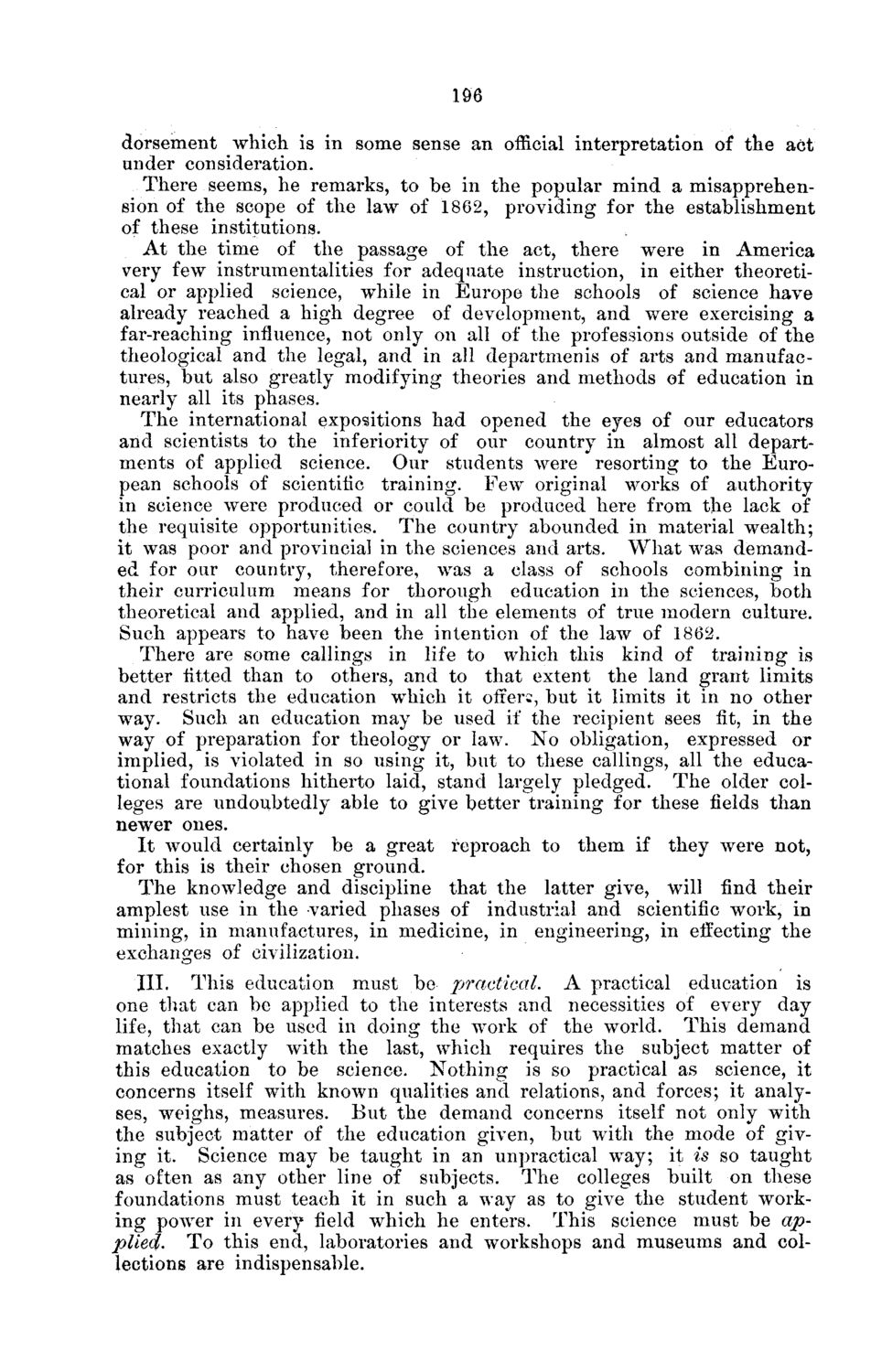| |
| |
Caption: Board of Trustees Minutes - 1878
This is a reduced-resolution page image for fast online browsing.

EXTRACTED TEXT FROM PAGE:
196 dorsement which is in some sense an official interpretation of the act under consideration. There seems, he remarks, to be in the popular mind a misapprehension of the scope of the law of 1862, providing for the establishment of these institutions. A t the time of the passage of the act, there were in America very few instrumentalities for adequate instruction, in either theoretical or applied science, while in Europe the schools of science have already reached a high degree of development, and were exercising a far-reaching influence, not only on all of the professions outside of the theological and the legal, and in all departmenis of arts and manufactures, but also greatly modifying theories and methods of education in nearly all its phases. The international expositions had opened the eyes of our educators and scientists to the inferiority of our country in almost all departments of applied science. Our students were resorting to the European schools of scientific training. Few original works of authority in science were produced or could be produced here from the lack of the requisite opportunities. The country abounded in material wealth; it was poor and provincial in the sciences and arts. W h a t was demanded for our country, therefore, was a class of schools combining in their curriculum means for thorough education in the sciences, both theoretical and applied, and in all the elements of true modern culture. Such appears to have been the intention of the law of 1862. There are some callings in life to which this kind of training is better fitted than to others, and to that extent the land grant limits and restricts the education which it offers, but it limits it in no other way. Such an education may be used if the recipient sees fit, in the way of preparation for theology or law. No obligation, expressed or implied, is violated in so using it, but to these callings, all the educational foundations hitherto laid, stand largely pledged. The older colleges are undoubtedly able to give better training for these fields than newer ones. I t would certainly be a great reproach to them if they were not, for this is their chosen ground. The knowledge and discipline that the latter give, will find their amplest use in the varied phases of industrial and scientific work, in mining, in manufactures, in medicine, in engineering, in effecting the exchanges of civilization. III. This education must be practical. A practical education is one that can be applied to the interests and necessities of every day life, that can be used in doing the work of the world. This demand matches exactly with the last, which requires the subject matter of this education to be science. Nothing is so practical as science, it concerns itself with known qualities and relations, and forces; it analyses, weighs, measures. But the demand concerns itself not only with the subject matter of the education given, but with the mode of giving it. Science may be taught in an unpractical way; it is so taught as often as any other line of subjects. The colleges built on these foundations must teach it in such a way as to give the student working power in every field which he enters. This science must be applied. To this end, laboratories and workshops and museums and collections are indispensable.
| |